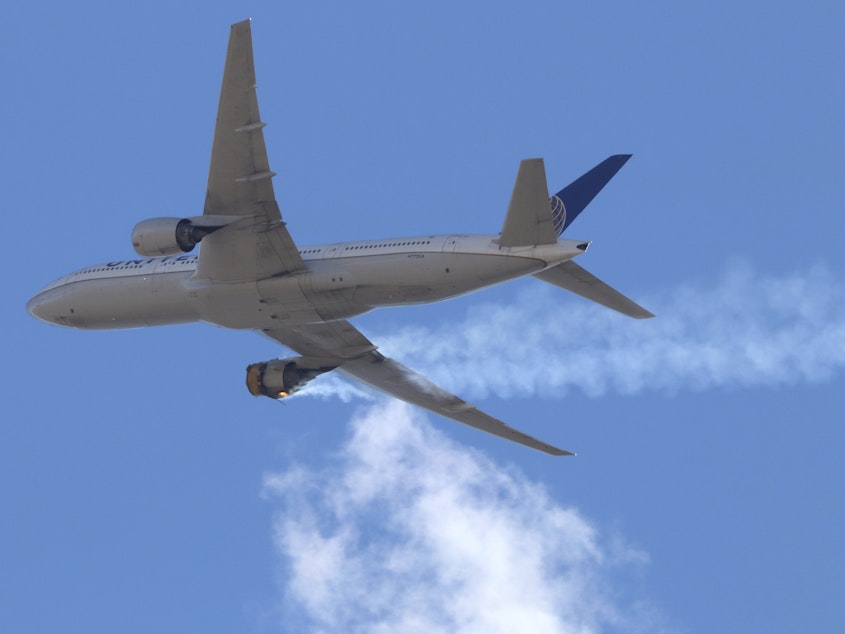After Explosion, FAA Orders Engine Checks On Boeing's Pratt & Whitney Powered Planes

The Federal Aviation Administration has ordered emergency inspections of Boeing 777 aircraft with engines like the one that exploded on a United Airlines jet last weekend.
The Emergency Airworthiness Directive prohibits U.S. airlines who operate planes equipped with the same Pratt & Whitney PW 4000 engines from further flights until the checks completed.
The directive is effective immediately and comes just days after United Airlines flight 328 was forced to make an emergency landing shortly after takeoff from Denver International Airport when one of its engines blew apart due to a fan-blade failure. Debris flew out of the engine, causing an explosion and fire and a large gash near the right wing.
Although the plane landed safely and no one suffered any injuries, heavy machine chunks rained down on residential neighborhoods below.
United immediately grounded all of its 777 planes pending an ongoing investigation.
"After reviewing the available data and considering other safety factors, the FAA determined that operators must conduct a thermal acoustic image inspection of the large titanium fan blades located at the front of each engine," FAA officials said in a statement.
A TAI can detect cracks in the interior of the fan blades or in areas that cannot be seen during a visual inspection.
The FAA will review the results of the inspections and issue additional guidance based on the data.
These types of engines were previously examined every 6,500 flight cycles, which are defined as one takeoff and landing.
In a statement, a Boeing spokesperson said the company "supports the FAA's guidance on inspection requirements" and that it "will work with our customers through the process."
United Airlines is the only U.S. carrier that flies the Boeing 777 powered by Pratt & Whitney PW4000-112 engine. It operates 52 such aircraft.
Meanwhile, Boeing said there are a total of 128 in use worldwide.
The FAA's order only applies to U.S. airlines though international aviation regulators usually issue the same safety mandate. [Copyright 2021 NPR]

